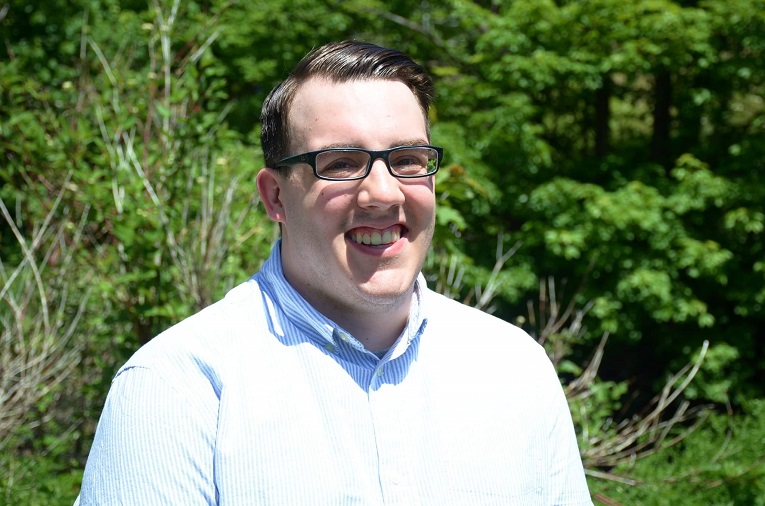A talent for ROV troubleshooting
Josh Burt has been on the path to a career in ocean exploration from early age.
He developed an interest in marine environments from his mom, a marine biologist with Fisheries and Oceans Canada in St. John’s. Later, he discovered the technical side of marine work from her fisheries colleagues who used remotely operated vehicles (ROVs) to carry out seafloor surveys of marine life.
“I’ve always been interested in technology and I have a pretty mechanical mind. If something is broken, I like trying to fix it,” he said.
“Some of my mom’s colleagues introduced me to the technology they used like small ROVs. One of them brought me to the Regional MATE ROV Competition at the Marine Institute and that sparked my interest in the marine technology sector.”
Mr. Burt completed his Diploma of Technology in Underwater Vehicles in 2020 when in-person graduation ceremonies were not held.
More recently, he completed his Bachelor of Technology and is now a geophysical and autonomous underwater vehicle technician with Fugro GeoSurveys.
Troubleshooting skills
The underwater vehicles program is offered by the School of Ocean Technology, where students learn how to operate, maintain and repair ROV systems through a combination of classes, simulations and workplace training.
Mr. Burt says the hands-on experience and troubleshooting skills he developed have provided a good grounding for his survey work in the Atlantic Ocean, Caribbean and soon the Gulf of Mexico.
“Learning to troubleshoot has been the biggest take-away from the program.
“On my last hitch, we had a major issue with one of our pieces of equipment that nobody else was familiar with. I did a deep dive into its whole system and was able to troubleshoot it and fix it.”
He works six-week rotations with Fugro, whose services include seafloor mapping and geotechnical, seismic and hydrographic surveys.
“I’ve been doing geosurveys, working on offshore wind surveys and working with clients from around the world.”

Competitions and awards
During his time off, Mr. Burt volunteered as a mentor with the NL Regional Marine Advanced Technology Education (MATE) ROV Competition held at MI last month for the first time since the pandemic.
“It was good to see all the kids back together and see how motivated and happy they were to try their bots out in the flume tank again.”
He also answered student questions about working offshore and provided advice on ROV design – drawing on his own experience in ROV competitions.
A pilot and mechanic for the Eastern Edge Robotics team, he and 21 other students from MI and Memorial participated in the 2019 MATE International ROV Competition held in Tennessee.
He also received two awards stemming from his participation in the robotics team – the Public Service Credit Union Award and the Jamie Klein Memorial Award.
The Public Service Credit Union Award goes to a member involved in an MI team in a marine field of study. It’s awarded to a student who demonstrates leadership, dedication and academic merit.
Named for the late Jamie Klein, the second award is presented to a School of Ocean Technology student who participates in extracurricular activities and shows initiative in helping other students succeed.
Next steps and advice
Mr. Burt’s future plans include continuing his education with MI’s Master of Applied Ocean Technology (Ocean Mapping) program and he’s hopeful it will be offered online in future.
“Eventually, I want to complete a master’s while I’m working.”
In the meantime, he has learned a few lessons during his time at MI.
Asked what advice he might give his younger student self, he said: “Although it seems very overwhelming at first, if you take it bit by bit you can manage things pretty well. Don’t burn yourself out trying to do everything all at once.
“There’s a saying that goes something like: you can’t eat an elephant in one bite.”